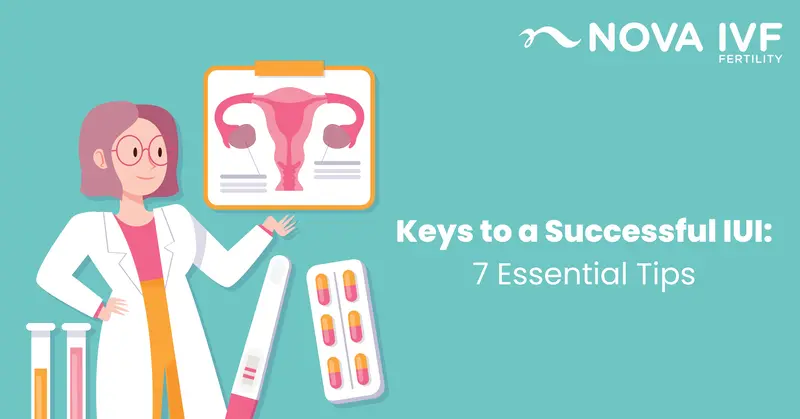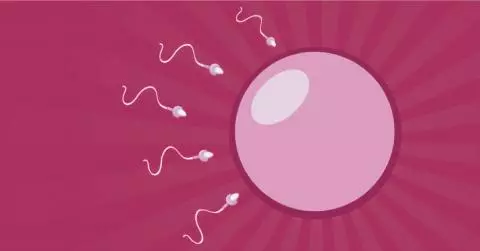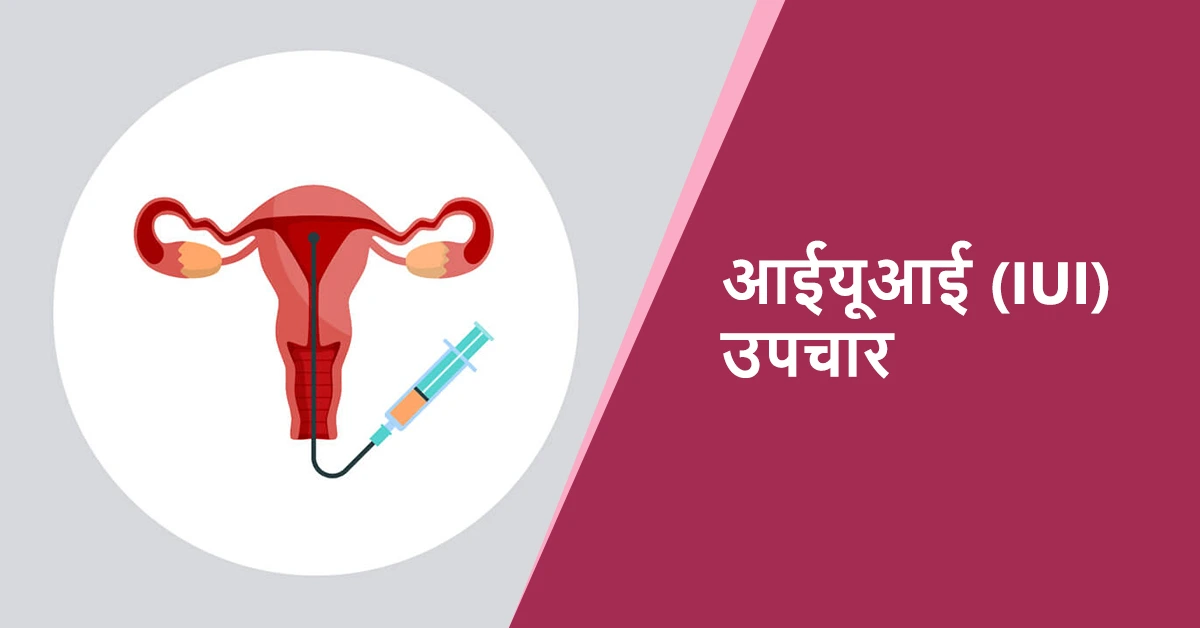Keys to Successful IUI: Tips and Chances of Success

The Key to a Successful IUI
While many individuals harbour the dream to become parents, several have to deal with infertility issues that prevent them from conceiving. Thankfully, modern medicine has advanced and allows for various ways to circumvent infertility and get pregnant. One such method is an IUI, or intrauterine insemination. It is a procedure designed to help those who want to conceive get pregnant by placing sperm directly into the uterus. Doing so increases the chance of the sperm reaching the egg and fertilising it. An IUI is minimally invasive and relatively affordable when compared to other procedures. However, various factors contribute to making an IUI a success. Continue reading to learn more about how the success rate of an IUI treatment can be increased.
Why is an IUI Performed?
Before delving into the details regarding the success rate of an IUI treatment, it is important to understand whom it helps. Normally, an IUI is performed to mitigate the effect of conditions like:
Unexplained infertility: Often, couples try conceiving for a while without any success. If a couple cannot get pregnant despite a year of trying and there is no discernible reason as to why, an IUI can be an effective solution.
Mild Male Factor Infertility: Male infertility can also be a reason why a couple cannot conceive. If a male has poor or low sperm count, or his sperm features abnormal morphology, conceiving a child may be difficult. However, such issues are often not severe enough to warrant advanced treatment. In such cases, an IUI can be helpful in addressing the issue.
Cervical Mucus Issue: Conceiving may also be thwarted if a woman or AFAB person's cervical mucus is too viscous for sperm to move through. In such cases, an IUI can help bypass the hostile mucus and plant the sperm directly into the uterus.
Donor Sperm: IUI is instrumental in helping single women, homosexual couples, and infertile heterosexual couples conceive using donor sperm.
7 Tips for a Successful IUI
As far as how to improve IUI success rates go, taking a few measures can prove to be helpful. Here are a few things to keep in mind to boost the success rate of an IUI:
Picking a Fertility Clinic:
Choosing the right fertility clinic can give a leg up to IUI's chances of success. It is best to approach a reputable fertility clinic experienced in performing IUIs. Looking at the success rate of the clinic, the qualification of the medical staff, and the use of cutting-edge technology are instrumental in improving the odds of a successful IUI. Doing research, asking questions, and seeking recommendations from family, friends, and online resources can lead one to the right fertility clinic.
Keeping Track of Ovulation:
Women should keep track of their ovulation to increase the chances of a successful IUI. Ideally, it is best if a medical professional performs the procedure at the optimal time, right when the egg is dispersed from the ovary. Frequent ultrasound scans can help keep track of ovulation and pick the optimal time for insemination.
Choosing Ovulation Induction:
Chances of an IUI may be affected by irregular menstrual cycles or difficulty ovulating. In such cases, doctors prescribe medications that can activate the ovaries and encourage the development of eggs. Such medication and its results can increase the chances of a successful IUI by generating a mature egg ready for fertilisation.
Following a Healthy Lifestyle:
A healthy lifestyle is a practical and crucial step to improve the chances of an IUI succeeding. A healthy lifestyle encompasses changes such as switching to a balanced diet, getting regular exercise, stress management, weight management, etc., which can contribute to the success of an IUI.
Improve Sperm Health:
Since male sperm of an inferior quality can impede conception, it is important to maintain sperm health. A few lifestyle changes that can help with the same are avoiding smoking, and alcohol consumption, opting for supplements like vitamins, etc. can help a man boost their sperm count, mobility, shape, and size.
Prepare Sperm Properly:
Sperm used for an IUI has to be washed properly to separate the healthy elements from the semen i.e.: the liquid which carries the sperm. The step helps reduce the risk of infection and picks only the best sperm for insemination.
Have Patience and Persistence:
IUI, like any other fertility procedure, is not a one-shot success. Often, multiple IUI cycles are necessary to achieve a successful pregnancy. It is important not to give up on the treatment quickly and be open to treatment plans drafted by doctors and medical professionals.
What are the Factors that Affect the Success Rate of an IUI
Here are a few key factors that determine the success of an IUI:
Age:
A woman’s age is crucial to the success of an IUI treatment. Since fertility decreases as a woman ages, such individuals under the age of 35 have a greater chance of achieving success via an IUI as opposed to individuals over 35.
Causes of Infertility:
If the person receiving IUI also suffers from a certain infertility issue, the chances of the procedure succeeding can be negatively affected. Usually, couples/individuals dealing with fertility conditions like mild male factor fertility, thick cervical mucus, or unexplained infertility find IUI to be a successful procedure.
Quality of Sperm:
A man’s sperm quality, such as sperm count, mobility, and morphology, can have an effect on IUI success rates. To achieve success post-IUI, maintaining sperm health is crucial.
Ovarian Response:
How a woman’s body responds to ovulation-inducing medication can also impact the success of an IUI. If the body responds favourably and generates one or more mature eggs, the likelihood of an IUI succeeding increases.
Insemination Timing:
Timing an IUI is crucial to its success. It is best performed when a woman is most fertile, and the body releases an egg. Keeping track of ovulation can help time the procedure.
Endometrial Thickness:
A woman having a healthy endometrial lining increases the odds of successful implantation of a fertilised egg. If the endometrial lining is too thick or thin, it can reduce the chances of an IUI succeeding.
Lifestyle:
Excessive smoking, drinking, obesity, and stress can have a negative impact on the results of an IUI.
Symptoms That Indicate a Successful IUI?
Although there is no sure-shot way of predicting the success of an IUI, a few symptoms manifest early on after a successful procedure. They are:
- Bleeding: After an IUI, some women might experience light bleeding, also known as spotting, as the fertilised egg gets implanted into the uterine lining. However, such spotting should ideally last for 10-14 days after the IUI.
- Breast Tenderness: Hormonal changes that take place during the early stages of pregnancy also cause breast tenderness similar to what women experience prior to their period.
- Fatigue: Increased levels of the hormone progesterone during the earlier months of pregnancy can cause fatigue.
- Nausea: Nausea, or morning sickness, is also a common symptom of early pregnancy although it can occur at any time of the day.
- Heightened Senses: Several pregnant women claim to be increasingly sensitive towards certain smells that trigger food aversions or nausea.
- Frequent Urination: As the production of the hormone human chorionic gonadotropin (HCG)increases during pregnancy, a woman may feel the urge to urinate frequently.
Do remember that such symptoms also occur due to hormonal changes, PMS, or other underlying reasons. A pregnancy test is the best way to confirm if an IUI has succeeded. At-home pregnancy kits or a blood test can provide a sure-shot answer.
Increase IUI Chances of Success at Nova IVF
Fertility procedures can be intimidating and expensive. However, at Nova IVF, we strive to make such procedures approachable and accessible to as many Indians as needed. Our facilities are equipped with state-of-the-art technology that expedites procedures while ensuring our patients’ safety. We hire doctors and clinicians who are experts in their field of study and can guide patients towards the correct procedure and treatment plan. At Nova IVF, we go above and beyond to ensure that we help potential parents fulfil their dream of having a child.
FAQs on Successful IUI
Q. What is the success rate of IUI in India?
A. In India, the average success rate of an IUI ranges from between 15%-30% per cycle.
Q. Is IUI's success guaranteed?
A. No, although IUI is a minimally invasive procedure, its success is not guaranteed, and it may take multiple cycles before an individual/couple conceives.
Q. Is IUI a surgical procedure?
A. No, an IUI is a non-surgical fertility procedure.
Q. Is it possible to get pregnant after one round of IUI?
A. Yes, some couples do get pregnant after a single round of IUI.
Q. What is the waiting period after an IUI?
A. Ideally, patients are requested to wait for a period of 2 weeks to check whether the IUI has succeeded or not.
 Infertility Counselling
Infertility Counselling Female Infertility Treatment
Female Infertility Treatment Andrology Treatment
Andrology Treatment Fertility Enhancing Surgeries - Female
Fertility Enhancing Surgeries - Female Fertility Enhancing Surgeries - Male
Fertility Enhancing Surgeries - Male Endoscopy Treatment
Endoscopy Treatment IUI Treatment
IUI Treatment IVF Treatment
IVF Treatment ICSI Treatment
ICSI Treatment Advanced IVF Solutions
Advanced IVF Solutions Embryology
Embryology Vitrification Egg, Embryo, Sperm Freezing
Vitrification Egg, Embryo, Sperm Freezing Preimplantation Genetic Testing (PGT)
Preimplantation Genetic Testing (PGT) Donation Program Embryo / Egg / Sperm
Donation Program Embryo / Egg / Sperm Self-cycleTM IVF
Self-cycleTM IVF

 Self-cycleTM IVF
Self-cycleTM IVF










